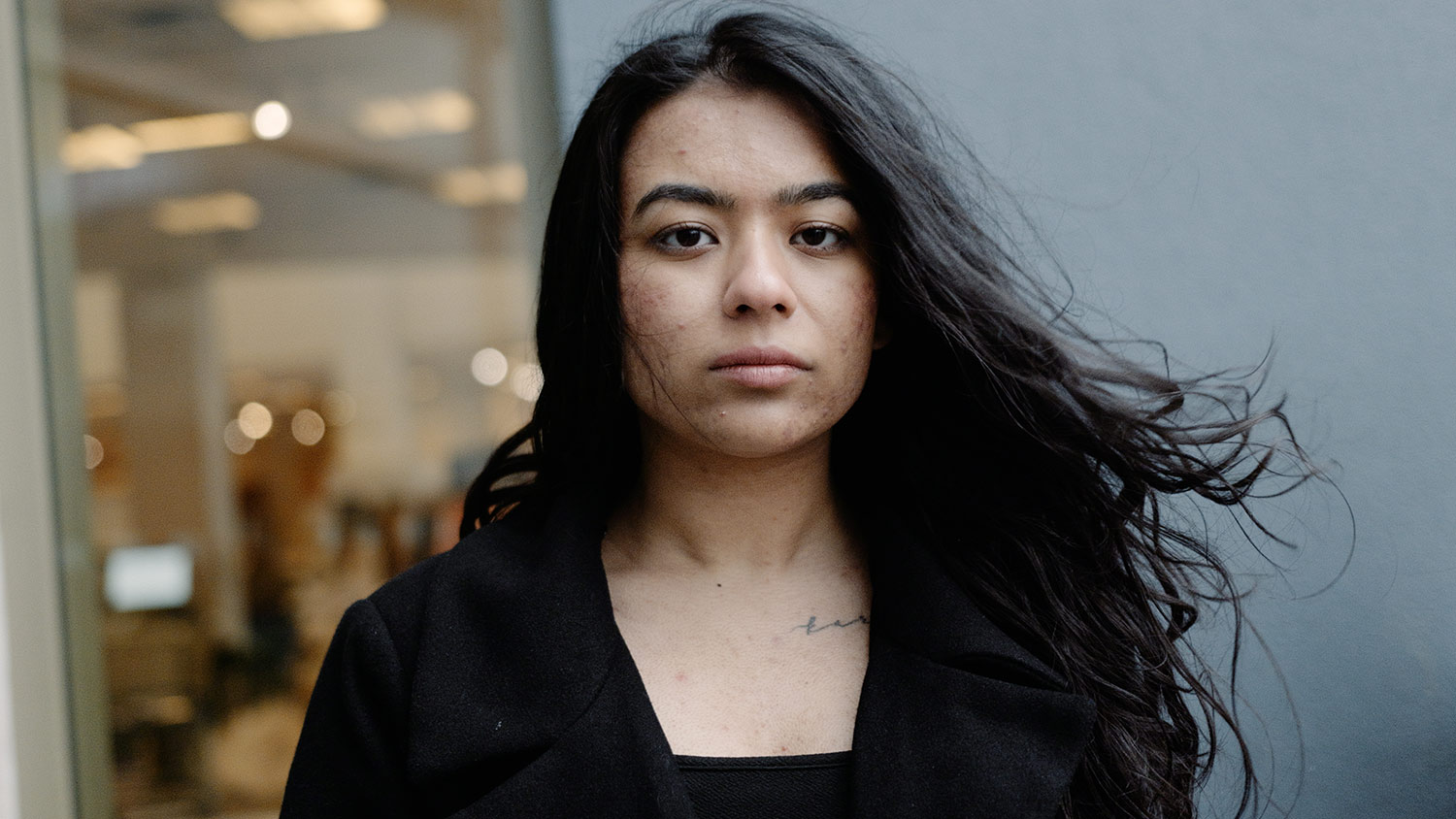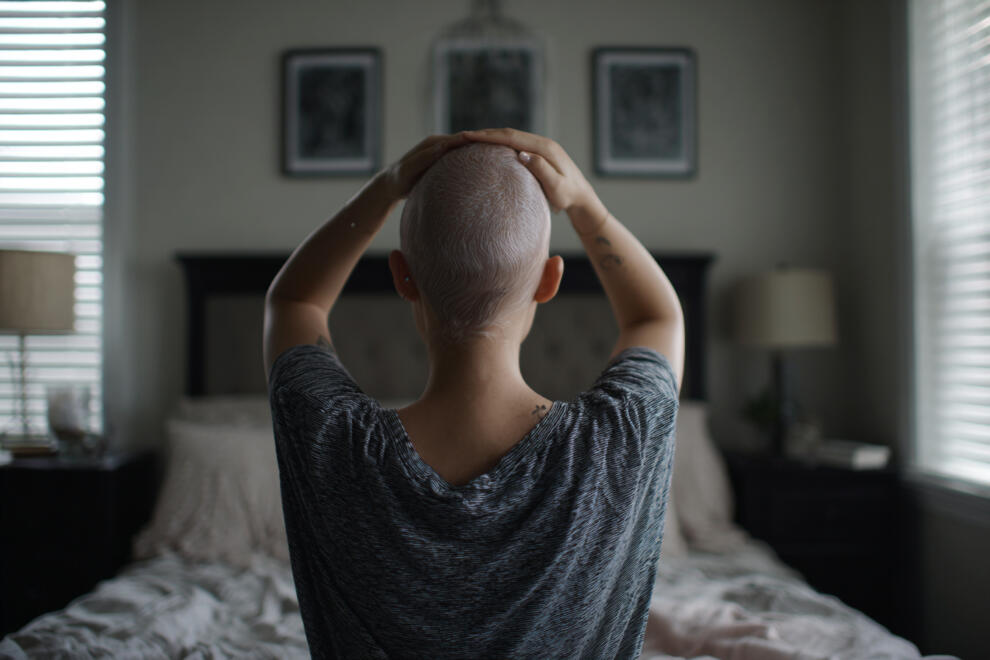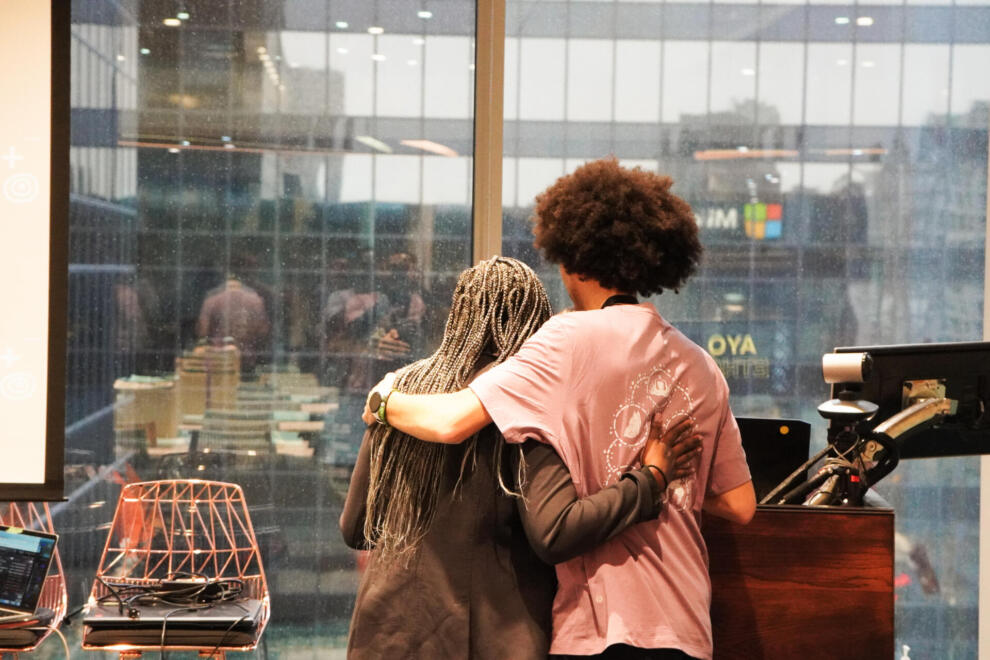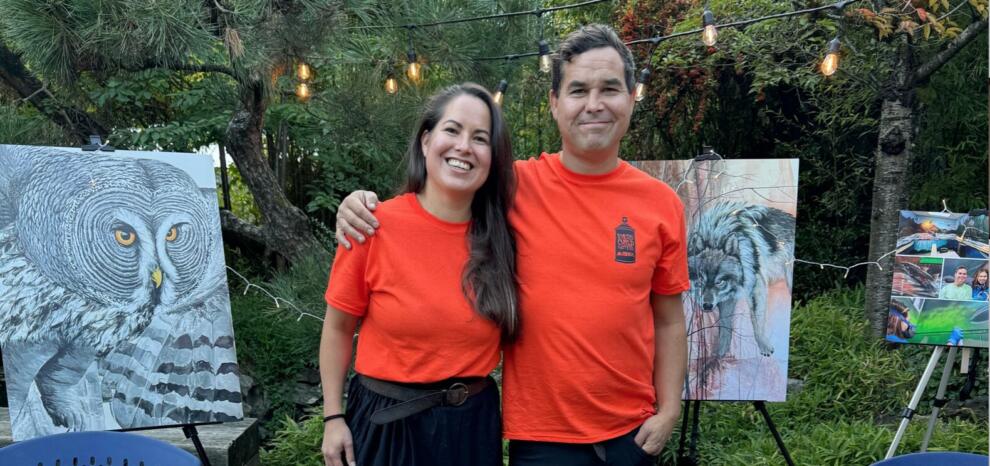ਸੁਣੋ (Listen): The Struggles of Female South Asian students
ਸੁਣੋ (Listen): The Struggles of Female South Asian students
by Jenn Wint
Many South Asian female students in Canada face tough challenges—high living costs, job struggles, and cultural adjustments. There’s also a darker issue often left unspoken: sexual abuse and harassment by men within their own communities. From landlords to professors, community members expected to protect them are preying on vulnerable young women.

The number of female South Asian students facing abuse in Canada is a pressing issue that has largely remained hidden. Kahani Pictures is a social impact production company that connects people through beautiful films to tell thought-provoking stories that uplift diverse community voices. Their latest documentary, ਸੁਣੋ (Listen): The Struggles of Female South Asian Students sheds light on this issue with interviews from survivors, counselors, and advocates for urgent change.
We talked to Award-Winning Filmmaker and founder of Kahani Pictures, Inder Nirwan, to learn more about ਸੁਣੋ (Listen) and bring light to the harsh realities many students are facing.
ROC: What prompted you to make a film about the abuse of female South Asian students in Canada?
Inder: My team was approached by Balraj S. Khalon from One Voice Canada, an organization that works on supporting international students in Canada. He revealed to us that there’s an unspoken prevalence of sexual misconduct towards international students throughout Canada. Balraj introduced us to Anuparm Sharma from Sunoh Charity and Dr. Baldev S. Mutta from Punjabi Health Services Canada. They shared the details of the issue based on their experiences working directly with survivors.
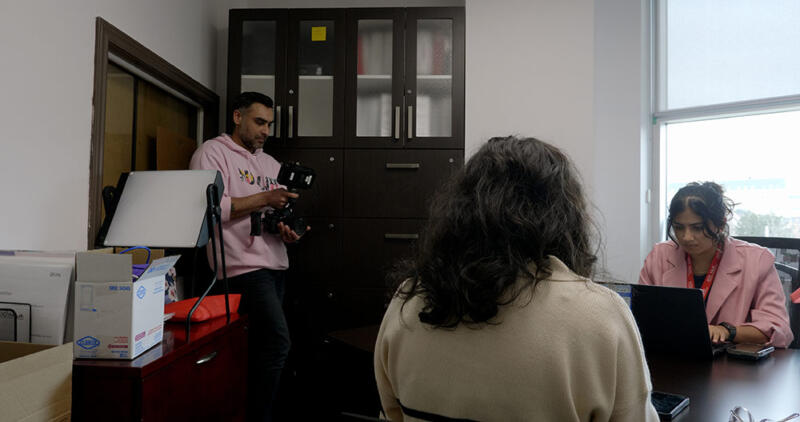
We felt that shedding light on the issue by listening to survivors and giving these experts a platform to express their concerns would be a powerful way to force a much-needed conversation within the community.
ROC: Your documentary exposes harassment and sexual abuse of South Asian Students at the hands of their fellow community members. Why do you think this issue has remained underground for so long?
Inder: There seem to be a couple of factors that allow for the issue to persist. Firstly, there is an aversion to speaking about sex in South Asian culture. Parents don’t talk to their kids about sex. We would grow up switching channels if characters on TV so much as kissed. What this leads to is widespread misunderstandings around sexual misconduct. We’ve seen when women come forward that the community is quick to blame the victim. This leads to unsafe scenarios where women seeking help are often vilified and driven further into mental and physical distress.
Another issue is that the colleges who have invested in recruitment programs targeting South Asian immigrants don’t put nearly as much (if any) funding into support programs for newcomers to Canada. Many of these young students haven’t seen much of the world outside of their rural homes in India. The difference in cultures, being alone, different standards of living, all of these factor into a stressful situation– on top of the stresses of being a student. Their families have often poured life savings into affording tuition and living expenses. Therefore, any perceived failures by the students are kept secret because they don’t have support groups or experienced peers to turn to, and they don’t want to disappoint their families who have given everything for this opportunity. Schools need to understand that there are countries where parents don’t raise their children with an emphasis on building crucial independent skills like we do here in Canada. If the schools are collecting 3x the tuition from international students, some of that money ought to be utilized for support programming for those falling through the cracks.

ROC: Why do you think South Asian immigrant women are less likely to report domestic violence?
Inder: There is a general fear of being deported, and that fear is often weaponized by abusers. Imagine a well-established man who offers favours to a young impressionable student. He promises her that he will leave his wife for her and start a new life with her. Years go by and things don’t change, now he’s got information on her, he’s likely collected personal documents like her passport and has some kind of financial hold on her. If she refuses his demands, he makes threats to report her to immigration services and have her passport revoked. This is a typical situation that keeps young women from coming forward. According to Dr. Baldev S. Mutta, the fear of being sent back is so great that no amount of clinical intervention can convince them otherwise.
ROC: As a filmmaker how did you approach this topic?
Inder: I knew that we had to include survivor stories in order to set a precedent. However the fear of being ousted is a powerful deterrent for many women to speak up. We found ways to include survivor stories without revealing their identities and in ways that hopefully won’t damage the integrity of their authenticity. I’m a big proponent of authentic storytelling, since film can often be quite an extractive experience where egos overtake the truth. I hope that the way we’ve captured the stories in this film can inspire others to come forward.
ROC: As a South Asian filmmaker, how difficult was it to conduct these interviews?
Inder:I wasn’t so concerned with difficulty based on my being South Asian- rather that I’m a man asking young women to speak truthfully and to be vulnerable about how other men took advantage of them. Thankfully our participants are all very lovely people that are keen to share their stories. They see the importance of what we’re trying to do and that this is a collaboration. It feels good to know we have their trust.
ROC: Was it difficult to find women to share their stories?
Inder: We did have a number of women who initially showed interest but when the time came, they fell short of doing the interview. This was expected and just part of the process. We kept our schedule loose and allowed for last-minute changes so that no one would feel like we were coercing them or forcing them to re-traumatize themselves for our benefit. We found ways to conceal the identities of those who wanted to remain unknown, and when we showed them our filmmaking techniques to accomplish that, they felt much more at ease. Letting them into the process is a big part of building rapport so that they can trust we are looking out for them.
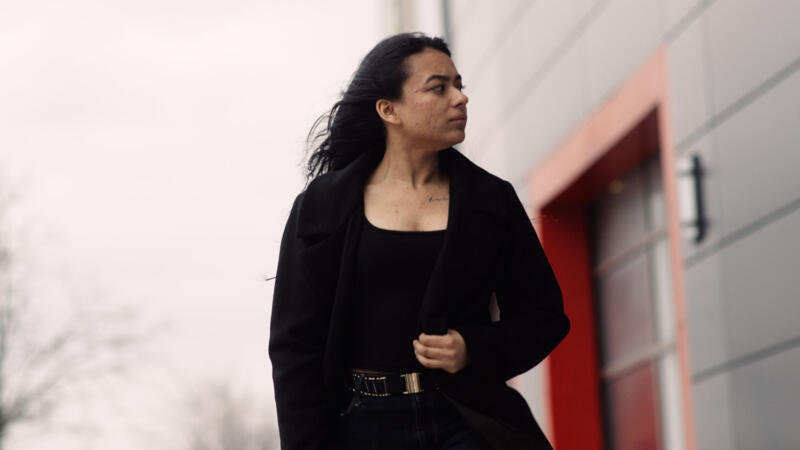
ROC: Why is it so important for these women to share their stories?
Inder: I think that giving space for people to share their stories from a personal perspective, where they can talk about how they were feeling, and how they came to the decisions they made, that context is so important in leading audiences to build empathy. There are a lot of materials we’ve seen online in our research where stories are told on behalf of others, or news programs that only share bits of details, and the comments often blow up into total misunderstanding of the situation. Hopefully, we’ve left enough room in our interviews for our survivors to tell their stories in their own voices so that people can connect with them more personally and with empathy and understanding.
ROC: Who do you hope this documentary catches the attention of?
Inder: Everyone.
ROC: Where can South Asian women suffering abuse go for help?
Inder: The first thing South Asian women could and should do is turn to a trusted friend. Many people suffer through these situations alone and the shame they feel can be absolutely devastating.
For more professional support, I would recommend Punjabi Health Services Canada, One Voice Canada, and Sunoh Charity. These organizations specialize in supporting South Asian folks with domestic concerns, mental health, and adjusting to life in Canada. Though they currently do not receive any kind of funding from governments or schools to specifically support international students facing sexual abuse in Canada- hopefully this documentary can inspire resourcing for this much-needed support.
“Kahani” is a Punjabi word that means “story.” This documentary aims to capture the interest of a wide audience by sharing the stories of women affected and emphasizing the universal relevance of the issue. By shedding light on the abuse faced by South Asian students in Canada, Inder and his team hope to spark a global conversation about the broader problem of sexual misconduct and the need for systemic change and support for victims. The film premieres in Surrey, British Columbia on June 19. Find tickets for ਸੁਣੋ (Listen): The Struggles of Female South Asian Students.
Visit the Kahani website for a list of support groups to consider.
Watch and share the documentary trailer.
Support Sunoh Charity, an international independent charity organization focused on issues such as sex trafficking and the mental health of international students, encouraging governments and civil society to be aware, pay heed, and help reduce the spread of these issues.
